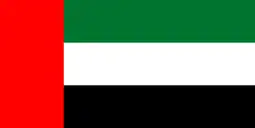| 2017 Chile wildfires | |
|---|---|
 Satellite image of the fires, captured by NASA on January 25, 2017. | |
| Location | |
| Statistics | |
| Total fires | 5,274 [1] |
| Total area | 1,408,988 acres (5,702 km2) [1] |
| Buildings destroyed | 1000+ |
| Deaths | 11 |
A series of wildfires burned across Chile during January 2017.
Impact
On January 27–28, a wildfire described as the worst in Chile's modern history killed at least 11 people, including five firefighters and destroyed the town of Santa Olga in the central Maule Region, displacing thousands of people.[2][3]
In the two decades from 2000 to 2020 the 2017 Chile wildfires were the ones that impacted the largest area of protected areas and the largest number of protected areas in Central Chile.[4] In this regard only the wildfire seasons of 2009–2010 and 2019–2020 are comparable in the whole 2000–2020 period.[4]
Reactions
On January 20, the Chilean government declared a state of emergency in response to the wildfires.[5]
Chilean President Michelle Bachelet cancelled her planned visit to Punta Cana, Dominican Republic, for the fifth CELAC Summit on January 24–25 due to the wildfires.[6]
On late February 2022, five years after the fire Aída Baldini, manager of the wildfire division of the National Forest Corporation, declared that their budget to fight fires had increased five times.[7]
International support
 Argentina had more than 130 firefighters in Chile at one point.
Argentina had more than 130 firefighters in Chile at one point. Austria sent firefighting equipment and tools.[8]
Austria sent firefighting equipment and tools.[8] Brazil sent two MAFFS-equipped C-130 Hercules.[9]
Brazil sent two MAFFS-equipped C-130 Hercules.[9].svg.png.webp) Canada provided planes and helicopters.
Canada provided planes and helicopters. China provided economic support.[10]
China provided economic support.[10] Colombia sent more than 20 firefighters.
Colombia sent more than 20 firefighters.- The
 European Union sent a team of eight to Santiago.[8]
European Union sent a team of eight to Santiago.[8]  France sent 69 firefighters.[11][12]
France sent 69 firefighters.[11][12] Germany has donated US$215,000.
Germany has donated US$215,000. Israel has pledged aid to Chile.[13]
Israel has pledged aid to Chile.[13] Italy has pledged aid to Chile.[13]
Italy has pledged aid to Chile.[13] Japan sent four people.
Japan sent four people. Mexico sent more than 20 firefighters.
Mexico sent more than 20 firefighters. Panama sent 21 firefighters.[14]
Panama sent 21 firefighters.[14] Peru sent more than 20 firefighters.
Peru sent more than 20 firefighters. Portugal sent 52 firefighters.[11][12]
Portugal sent 52 firefighters.[11][12] Russia sent an Ilyushin Il-76 and more than 20 firefighters.
Russia sent an Ilyushin Il-76 and more than 20 firefighters. South Korea provided economic aid.[10]
South Korea provided economic aid.[10] Spain sent 64 firefighters.[14]
Spain sent 64 firefighters.[14] Sweden sent firefighting equipment and tools.[8]
Sweden sent firefighting equipment and tools.[8]- The
 United Arab Emirates has donated US$5 million.
United Arab Emirates has donated US$5 million. - The
 United States sent four specialists from the U.S. Forest Service, and a private company sent an Evergreen 747 Supertanker with a crew of 12. The United States has also contributed US$1,580,000.[11][15]
United States sent four specialists from the U.S. Forest Service, and a private company sent an Evergreen 747 Supertanker with a crew of 12. The United States has also contributed US$1,580,000.[11][15]  Venezuela sent 80 firefighters.[14]
Venezuela sent 80 firefighters.[14]
_(2).jpg.webp)
See also
References
- 1 2 Temporada
- ↑ "Chile's worst wildfires destroy Santa Olga town, death toll rises to 10". Firstpost. January 27, 2017.
- ↑ "Chile's worst wildfires in history displace thousands". www.aljazeera.com.
- 1 2 Faúndez Pinilla, Jorge; Castillo Soto, Miguel; Navarro Cerrillo, Rafael M. (2023). "Impactos de los incendios forestales de magnitud en áreas silvestres protegidas de Chile Central" [Impacts of severe wildfires in the protected wilderness areas of central Chile]. Bosque (in Spanish). 44 (2). doi:10.4067/s0717-92002023000100083.
- ↑ "Chile declares state of emergency due to massive wildfires". Reuters. January 20, 2017 – via www.reuters.com.
- ↑ "Raging wildfires force Chile leader to skip Dominican Summit". Dominican Today.
- ↑ "Nacional Aída Baldini, gerenta de incendios de Conaf: "Es usual que nos amenacen con armas en La Araucanía"". La Tercera (in Spanish). 2022-02-28. Retrieved 2022-02-28.
- 1 2 3 Contribution of Countries
- ↑ "Chile battles worst wildfire in country's history". Archived from the original on 2017-02-02. Retrieved 2017-01-30.
- 1 2 "Chile thanks EU firefighters for collaboration on wildfires". www.efe.com.
- 1 2 3 "Chile Receives International Aid for Wildfire Crisis". 31 January 2017.
- 1 2 "EU Teams Help Bring Chile's Worst Wildfires in 50 Years Under Control". ec.europa.eu.
- 1 2 "Correction: Chile-Wildfires story". www.yahoo.com. 8 February 2017.
- 1 2 3 "Chile's neighbors send help to fight worst forest fires in its history". January 29, 2017 – via www.dw.com.
- ↑ Hersher, Rebecca (February 6, 2017). "Chile's President Says Cataclysmic Wildfires Are Largely Under Control" – via NPR.